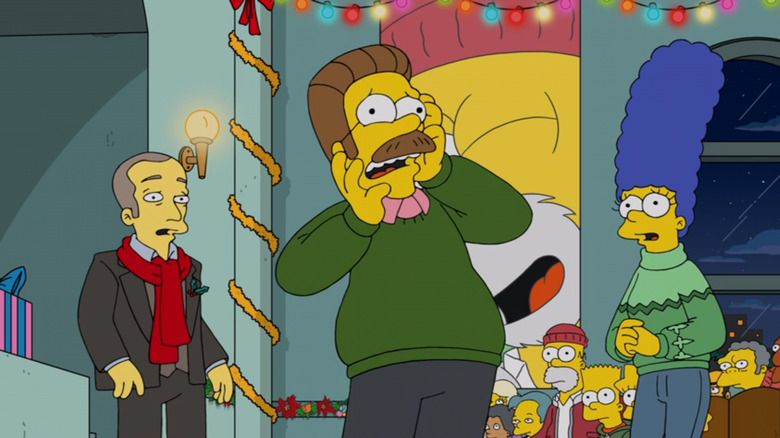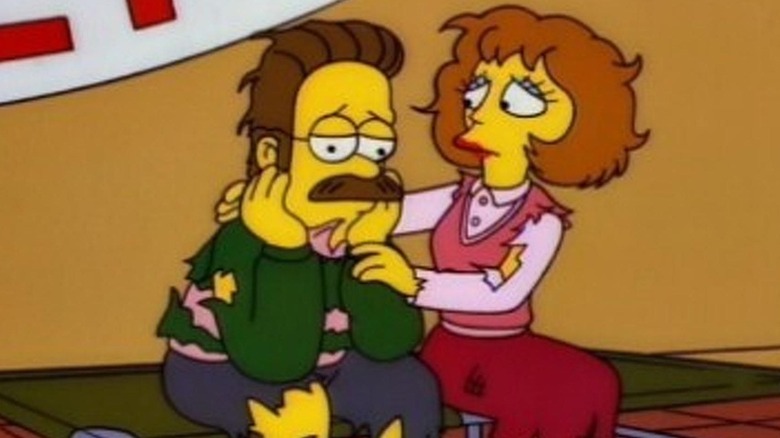
“The Simpsons” is an institution. It’s a show that changed animation and television, influenced countless other series, and created a standard for sitcom towns that feel like real places populated by dozens of side characters. Even if it’s not the cultural phenomenon it was in the ’90s, there’s a reason “The Simpsons” is not only still going after 35 years but is also going strong, even serving up a fake series finale — one that could have worked as the show’s actual finale — as a mere season premiere.
No matter how much time passes, “The Simpsons” is still very much a sitcom. It’s also a series where real change is impossible, happy endings are fleeting, and consequences are never lasting because there always has to be more of the show. The characters remain static, even if time passes around them, meaning the past cannot be brought back. Bart is always 10 years old, even if it means he was no longer born in 1979 but instead born in 2014 and even if Maggie is now a post-lockdown baby. Sure, there have been marriages, babies being born, and deaths, but those are quite rarely (if ever) referenced again after the fact. Otherwise, it would mean that time has truly passed, and time never passes in Springfield.
Except, it finally did in “O C’mon All Ye Faithful,” the new Disney+ Christmas special that celebrates the show’s 35th anniversary. In it, British mentalist Darren Brown comes to Springfield to try and lift up the town’s holiday spirit through some clever psychological magic tricks. In the process, he accidentally makes Homer believe he’s Santa (leading to a hilarious joke about the Grinch that had, admittedly, already been done on “Family Guy”), and also makes Ned Flanders lose his faith in God.
This isn’t just a spur of the moment crisis of faith brought upon by a British guy; rather, it’s the culmination of, as Ned puts it, “things rattling around in my noodle,” like the fact that God took from him not one, but two wives. That’s right, “The Simpsons” finally referenced Edna Krabappel and Maude Flanders, and it made for the most emotionally powerful Flanders episode in nearly 30 years.
Ned Flanders gets a surprisingly emotional episode
Ned Flanders has had crises of faith before, most notably in the 1996 episode “Hurricaine Neddy.” In that episode, a hurricane only destroys Flanders’ house, prompting him to lose his faith in God and go on a furious and crude tirade of profanities (well, for Ned’s standards anyway). It’s a fantastic episode, and not one that needed a follow-up or a remake, which makes the approach taken in “O C’mon All Ye Faithful” so effective.
Because it’s not just that Flanders has a crisis of faith or goes against his image by throwing insults at people. What makes this particular crisis powerful is how emotionally raw it is. Harry Shearer delivers his best voice performance in years, making Flanders incredibly vulnerable in the way he talks to Marge about the injustice of losing both Maude and Edna despite not only following the 10 commandments, but even coming up with two extra ones on his own. There’s also the fact that Flanders doesn’t lash out at the town; instead, he falls into a deep depression and replaces all the religious imagery in his house (including taking out a bible from his medicine cabinet and putting actual medicine in it).
“The Simpsons” is a hilarious, silly, creative show, but it can also be quite heartfelt and emotional. It’s fitting that a celebration of the series’ 35th anniversary would give us not just a great Homer Christmas story, but also the best Ned Flanders story in decades — after he already had got a beloved non-canon episode parodying the great “Fargo” TV show.
“The Simpsons” is streaming on Disney+.



Leave a Reply